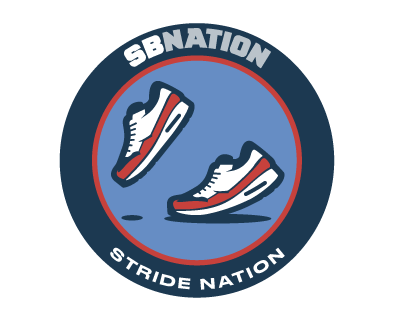Yesterday the Marine Corps Marathon sold out in a jaw dropping two hours and forty-one minutes. Without a doubt, it ws the fastest sell out for any 26.2 mile race held in the United States. It wasn't an isolated incident. Last month the 2012 Chicago Marathon sold out within a week and in 2010 Boston filled up in a blistering eight hours.
These land rush-style marathon registrations are a direct result of the growing popularity of these premier big city events. That demand is also feeding the spiraling costs associated with running in them. And it doesn't seem like either are likely to ease anytime soon.
Last month, Running USA released their annual report on the marathon and found that 2011 was, once again, a record breaking year. While the amount of growth has slowed considerably the demand for the so-called "destination races" remains robust.
A month ago Stride Nation looked at the costs of the nation's premier marathons and found they have risen precipitously over the past half-decade or so. The 2012 New York City Marathon's $255 registration fee for non-member domestic entrants is a 30% jump from last year making it, by far, the priciest of all the country's big-city races.
That has prompted concerns from some that these events could be nearing a ceiling -- the point where the exorbitant costs affect participation. Yet news this week out of Boston shows that the market for entry into nation's oldest most prestigious marathon has a long way to go before topping out.
Entry into the 2012 race cost qualified entrants just $150. According to Boston Magazine, those places in the April 16 race are now worth thousands of dollars on the black market. That's a huge jump from even the prices demanded to participate in the event's centennial running back in 1996.
The Boston Marathon black market prices are certainly not a scientific assessment of how much people are willing to pay to run in the Patriots' Day 26.2 mile event. What they do suggest the inelasticity of the registration prices has a good way to go yet. And the growing demand to run in the nation's premier marathons suggests we are not likely to see it change anytime soon.
That's because as more an more people want to run in these events, race organizers are limited in what they can do to handle the demand. The first alternative is simply expand the field and allow more runners in. And, to an extent, this has occurred with pretty much every major US race over the past decade. Yet race organizers are limited at some point by logistics.
Only so many runners can reasonably be fit on a given course and, at a certain point, costs began increasing far faster than the financial windfall of allowing more participants. You can't make the streets any wider and keeping a course open longer is eventually cost prohibitive.
Once you reach that barrier these popular races then face a tough decision on how to limit the field.
You can keep prices low and permit a large field. This is what happened to the Marine Corps Marathon. Even though it's the nation's fourth-largest race, the sub-$100 registration sharpened demand exponentially. And it sold out faster than most entrants will finish running it's 26.2 mile course.
You can cap your number of entrants but demand competitive pricing. This is the Boston Marathon option. The limited field then bolstered demand far beyond the required registration fee. While this year's race took a comparatively leisurely 11 days to sell out, the stratospheric black market prices demonstrate how hot this event remains.
And, lastly, there is New York. Despite the criticism race organizers received for hiking prices this year the event remains popular as ever. It still requires a complex lottery system to whittle down the entries to reach the cap. Even then, every year it shatters the record for largest marathon ever held.
This isn't all necessarily bad. The more runners are willing to pay to enter these destination races, the more likely they are to bolster the local economy by spending on ancillary expenses such as lodging and restaurants. Certainly local runners in places like New York, Chicago and Boston might not be able to run in their city's flagship event but that could be a boon for smaller marathons in the region.
But until the boom shows better signs of easing, be prepared to pay big bucks for the best races or plan to take the day off when registration opens and stay glued to the event's webpage.
